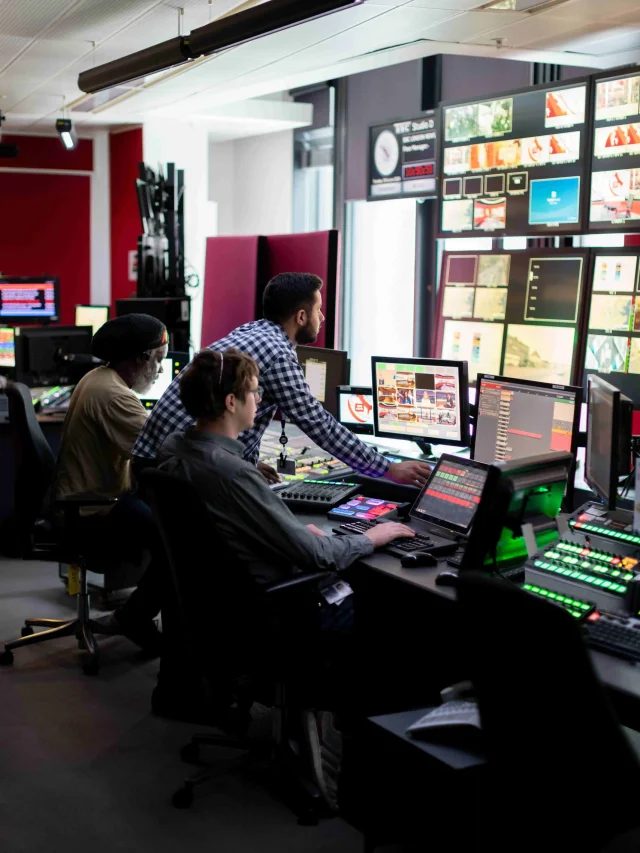MRI (Magnetic Resonance Imaging) machines have revolutionized the field of medical diagnostics, providing detailed and accurate images of the human body. These powerful imaging devices have become an indispensable tool in modern hospitals, allowing healthcare professionals to diagnose and monitor a wide range of medical conditions. In this article, we will explore the various uses of MRI machines in hospitals and how they contribute to improved patient care.
Related Contant
MRI machines utilize a powerful magnetic field and radio waves to generate detailed images of the body’s internal structures. Unlike X-rays or CT scans, MRI does not use ionizing radiation, making it a safe and versatile imaging modality. Let’s explore the various applications of MRI machines in hospitals.
2. Diagnostic Imaging
2.1 Head and Brain Imaging
MRI is extensively used for imaging the head and brain, providing valuable insights into various conditions such as tumors, hemorrhages, infections, and structural abnormalities. It helps doctors in diagnosing and monitoring neurological disorders like multiple sclerosis, Alzheimer’s disease, and stroke.
2.2 Spinal Imaging
MRI is highly effective in visualizing the spinal cord and surrounding structures. It aids in the diagnosis of spinal tumors, herniated discs, spinal infections, and spinal cord injuries. This non-invasive technique allows doctors to assess the extent of damage and plan appropriate treatment strategies.
2.3 Musculoskeletal Imaging
MRI is widely employed for assessing musculoskeletal conditions, including joint injuries, fractures, ligament tears, and degenerative diseases like arthritis. It offers detailed images of bones, joints, muscles, tendons, and ligaments, enabling accurate diagnosis and guiding orthopedic interventions.
3. Cancer Detection and Staging
MRI plays a crucial role in cancer diagnosis and staging. It provides detailed information about the size, location, and spread of tumors, aiding oncologists in planning appropriate treatment modalities. MRI is especially useful in imaging soft tissues and detecting tumors in organs such as the breast, prostate, liver, and kidneys.
4. Vascular Imaging
MRI is capable of capturing detailed images of blood vessels without the need for invasive procedures. It helps in diagnosing vascular diseases, such as aneurysms, blockages, and arterial narrowing. Additionally, MRI angiography provides crucial information about blood flow and the condition of blood vessels in the brain, heart, and other vital organs.
5. Cardiac Imaging
MRI machines equipped with specialized cardiac imaging capabilities allow doctors to assess the structure and function of the heart. It helps in diagnosing heart conditions such as heart attacks, heart valve abnormalities, and congenital heart diseases. Cardiac MRI can provide valuable insights into the heart’s pumping efficiency and identify areas of reduced blood flow.
6. Gastrointestinal Imaging
MRI can visualize and evaluate various gastrointestinal disorders, including Crohn’s disease, colitis, and liver diseases. It enables doctors to identify inflammation, tumors, and abnormalities in the gastrointestinal tract, aiding in the accurate diagnosis and treatment planning for these conditions.
7. Pediatric Imaging
MRI machines are particularly useful in imaging children due to their non-invasive nature and lack of ionizing radiation. They help in diagnosing and monitoring conditions such as congenital abnormalities, brain tumors, developmental disorders, and musculoskeletal problems in pediatric patients.
8. Interventional MRI Procedures
MRI-guided interventions allow doctors to perform minimally invasive procedures with real-time imaging guidance. These procedures include biopsies, tumor ablations, and the placement of catheters or implants. MRI provides precise visualization during the procedure, enhancing accuracy and reducing the risk to patients.
9. MRI-Guided Surgeries
In recent years, MRI machines have been integrated into surgical suites, enabling surgeons to perform complex procedures with real-time imaging guidance. This integration facilitates precise tumor removal, deep brain stimulation, and other neurosurgical interventions, enhancing the safety and efficacy of surgical procedures.
10. Advantages of MRI over other Imaging Techniques
MRI offers several advantages over other imaging techniques, such as:
- Superior soft tissue contrast
- Multiplanar imaging capabilities
- Non-invasive and radiation-free
- Suitable for patients with metal implants or pacemakers
- Can differentiate between benign and malignant tissues
11. Limitations and Precautions
While MRI is a powerful diagnostic tool, it does have certain limitations and precautions. These include:
- Limited availability and high cost
- Patient discomfort due to noise and claustrophobia
- Incompatibility with certain medical devices
- Pregnancy precautions due to the use of strong magnetic fields
12. MRI Safety Considerations
MRI machines are generally safe, but it is crucial to follow strict safety protocols. Patients with metallic implants, pacemakers, or certain medical devices may not be suitable for MRI. Additionally, proper screening for ferromagnetic objects and careful monitoring during the procedure are essential to ensure patient safety.
13. Future Developments in MRI Technology
Continuous advancements in MRI technology are expected to further enhance its capabilities. This includes the development of faster scanning techniques, improved image quality, and new applications such as functional MRI (fMRI) for studying brain activity. These developments will contribute to more accurate diagnoses and personalized treatment plans.
14. Conclusion
MRI machines have become indispensable in modern hospitals, enabling accurate diagnoses and guiding treatment decisions across various medical specialties. From diagnostic imaging to interventional procedures, MRI provides valuable insights into the human body without the use of ionizing radiation. As technology continues to evolve, MRI will play an increasingly crucial role in improving patient care and outcomes.
15. MRI Machine
MRI machines are complex medical devices that utilize strong magnetic fields and radio waves to generate detailed images of the body. They consist of a large magnet, gradient coils, radiofrequency coils, and a computer system. The MRI machine plays a pivotal role in various medical imaging procedures, enabling healthcare professionals to obtain high-resolution images for accurate diagnosis and treatment planning.
16. MRI Machine Price and Cost
The price of an MRI machine can vary significantly depending on various factors such as the strength of the magnet, the brand, additional features, and the geographical location. Generally, the cost of a new MRI machine can range from hundreds of thousands to millions of dollars. In addition to the initial purchase price, there are also ongoing costs associated with maintenance, servicing, and upgrades.
17. Open MRI Machine
An open MRI machine is a type of MRI scanner that provides a more open and spacious design compared to the traditional closed-bore MRI machines. It is especially beneficial for patients who may experience claustrophobia or discomfort in confined spaces. Open MRI machines allow for a more comfortable imaging experience while still providing high-quality diagnostic images.
18. MRI Machine Cost
The cost of an MRI machine goes beyond the initial purchase price. Additional costs include installation, site preparation, ongoing maintenance, service contracts, and operational expenses. It is important for healthcare facilities to consider the total cost of ownership when investing in an MRI machine to ensure a long-term and cost-effective solution.
19. MRI Scan Machine
An MRI scan machine, also known as an MRI scanner, is the equipment used to perform MRI scans. It consists of a patient table that moves into the magnet bore, where the patient lies during the scan. The scanner generates the magnetic field, applies radiofrequency pulses, and receives the signals emitted by the body to create detailed cross-sectional images.
20. Open MRI Machine Near Me
If you are looking for an open MRI machine near your location, you can use online directories or contact local hospitals, imaging centers, or medical facilities to inquire about the availability of open MRI machines. They can provide you with information on nearby facilities that offer open MRI scans to meet your needs.
21. MRI Scan Machine Price
The cost of an MRI scan can vary depending on several factors, including the geographical location, the type of facility (hospital, imaging center, etc.), and the specific type of MRI scan being performed. It is recommended to check with the healthcare facility directly to obtain accurate pricing information for MRI scans.
22. MRI Scanner Cost
The cost of an MRI scanner includes the initial purchase price of the machine, installation costs, ongoing maintenance and servicing expenses, and any additional features or upgrades. The price of an MRI scanner can range from hundreds of thousands to millions of dollars, depending on the specifications and capabilities of the system.
23. MRI Scanner Price
The price of an MRI scanner can vary based on factors such as the brand, model, strength of the magnet, and any additional features or software packages included. It is essential to consider the specific requirements of your facility and consult with reputable vendors or suppliers to obtain accurate pricing information for MRI scanners.
24. MRI Imaging Machine
An MRI imaging machine refers to the combination of the MRI scanner and the accompanying computer system that processes and reconstructs the acquired data into detailed images. The imaging machine plays a crucial role in capturing, analyzing, and displaying the images generated during an MRI scan, allowing radiologists and healthcare professionals to make accurate diagnoses and treatment decisions.
25. MRI Scanner Uses
MRI scanners have a wide range of uses in various medical specialties. Some common applications include:
- Neurology: Imaging of the brain and spinal cord for diagnosing and monitoring conditions such as brain tumors, strokes, multiple sclerosis, and neurodegenerative disorders.
- Orthopedics: Assessing joint injuries, cartilage damage, ligament tears, and bone abnormalities.
- Oncology: Detecting and staging tumors, planning radiation therapy, and monitoring treatment response.
- Cardiology: Evaluating heart structure and function, detecting heart diseases, and assessing blood flow.
- Gastroenterology: Visualizing and diagnosing conditions affecting the gastrointestinal tract, liver, and pancreas.
- Obstetrics and Gynecology: Assessing fetal development, detecting abnormalities, and evaluating reproductive organs.
These are just a few examples, and the applications of MRI scanners continue to expand as technology advances and new techniques are developed.
FAQs
Q1. Is an MRI scan safe? Yes, MRI scans are generally safe. However, certain precautions need to be taken, especially for patients with metallic implants or pacemakers.
Q2. How long does an MRI scan take? The duration of an MRI scan depends on the body part being imaged and the specific requirements of the examination. It can range from 15 minutes to over an hour.
Q3. Are there any risks associated with MRI scans? MRI scans are considered safe; however, some patients may experience claustrophobia or discomfort due to the enclosed space and noise within the MRI machine.
Q4. Can pregnant women undergo MRI scans? MRI scans are generally avoided during pregnancy, especially during the first trimester, unless the benefits outweigh the potential risks.
Q5. How often should MRI machines be serviced? MRI machines should undergo regular maintenance and service checks as per the manufacturer’s guidelines to ensure optimal performance and patient safety.



2 thoughts on “Uses of MRI Machine in Hospitals”